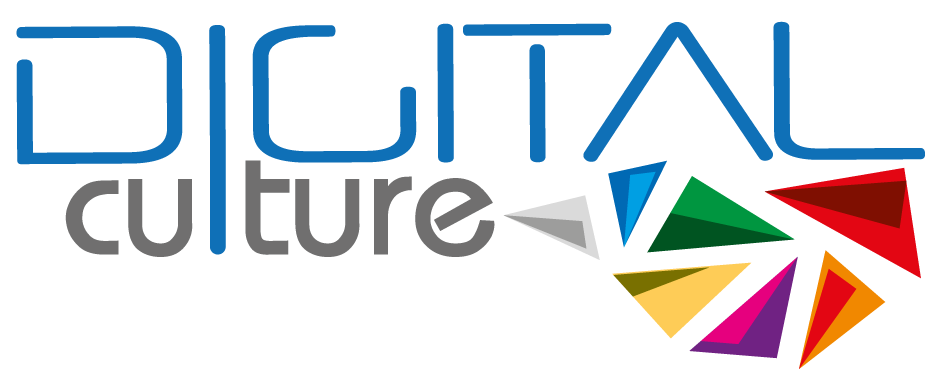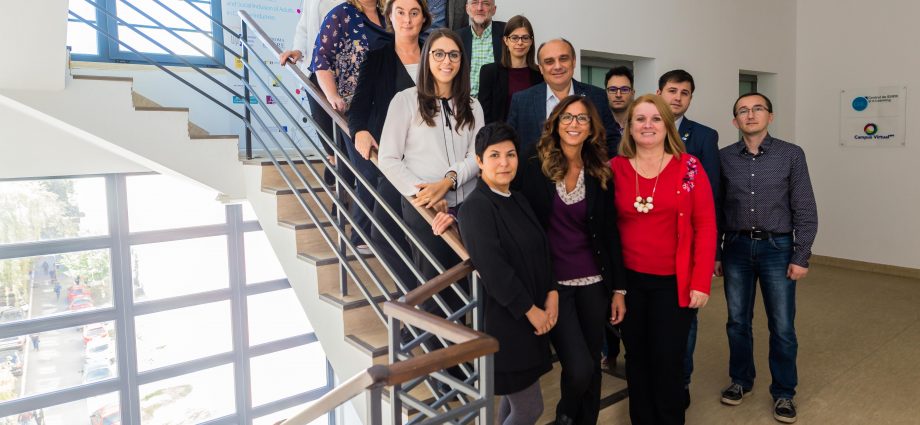Summary
DigiCulture (Improving the Digital Competences and Social Inclusion of Adults in Creative Industries) created a sustainable and accessible online course focused on openness and inclusivity and aimed at low digital skilled adult learners in the creative industries (CI) from Romania, Italy, Austria, Denmark, Lithuania, UK and Ireland.
The project addressed the low emphasis in CI education on the use of digital technologies, with recent graduates and existing employees lacking important skills. The recent pandemic proved to be especially challenging for CI stakeholders but evaluation of our project suggests that it helped improve digital skills, employability, creativity and marketability.
Its development was based on EU DigComp 2.1, and each course included the development of 2-5 digital competences to at least basic level. The diverse partnership comprised adult education centres from arts, humanities and technical universities, SMEs with expertise in art and eLearning and professionals in eLearning and cultural associations.
The project targeted young unemployed adults, staff and volunteers in European Capitals of Culture, adult workers with low digital skills at all levels in creative industries, actors, artists and volunteers in traditional activities (dancers, painters, wood and ceramic workers), museums, media, architecture, humanities, cultural and heritage organizations, traditional fairs, freelance performers (musicians, actors), members of disadvantaged and minority groups, stakeholders in creative industries, museums, architecture, humanities, adult education centres, universities, associations which support enhancing digital skills, and local and regional associations and departments.
We reached 24.871 individuals from these categories through information and dissemination and involved them in various activities.
All project objectives were fully or partially met:
- enhance awareness of the need for training in digital skills for CI
- design and validate cross-country Guidelines for Digital Competences for /CI
- create an Integrated Virtual Learning Hub
- design and develop a Digital Skills and Social Inclusion for Creative Industries Course (DSC), delivered through blended learning and as a fully online MOOC for the target group, with OERs translated into all partner languages.
- improve the achievement and recognition of digital skills through formal and informal learning by introducing e-assessment and Open Badges for adult education in CI
- provide engaging and effective learning experiences
- enhance collaboration between education providers, universities, cultural and heritage institutions and associations, cultural actors, workers and volunteers
- provide evidence about how achievement, assessment and validation of digital skills contributes to the uptake of new skills in creative industries
Outcomes include the DSC MOOC, with 13 modules available in EN, RO, DE, IT, LT, DA and GA (98 courses in 7 languages), available online and through blended learning, the Integrated Virtual Learning Hub including new Open Education Resources (OER) and accessible to people with limited digital skills, and validation through e-assessment leading to Open Badges and Certificates for Digital Skills.
The DSC modules are:
Internetas, žiniatinklis ir įvadas į skaitmeninį pasaulį
Duomenų apsauga ir atvirosios licencijos
Skaitmeninės informacijos rinkimas - skaitmeninės bibliotekos ir muziejai
Skaitmeninė sauga, saugumas ir etika
Socialinės žiniasklaidos kultūra
Digital audiences, Digital analytics
Augmented and Virtual Reality – Immersive experiences
Mobiliosios programėlės ir mobiliųjų vartotojų patirtis
Skaitmeninis bendravimas ir pristatymai
Internetinės ir mobiliosios skaitmeninės priemonės (garso ir vaizdo)
They provided new opportunities for the 1,574 learners involved to access knowledge, gain new digital skills and intercultural competences and improve their chances of finding employment or performing better in their current employment through 1,174 open badges and certificates.
Other results
- New OERs created in the DSC MOOCs 153
- NEETs adults trained in DSC 167
- Unique visitors and 102 posts on project website 6,554
- Unique hub users 5,637
- Self assessments 56,000
- Open Credentials (Badges and Certificates) 1,174
- YouTube view 893
- Twitter followers 193
- Multiplier events 6
- Dissemination events 120
- Leaflets or promotional materials distributed 22,470
- Published papers in conferences and journals 16
- Stakeholders reached 24,733
- Transferable initiatives 25
- Facebook reach 28,336
- Countries reached 60


